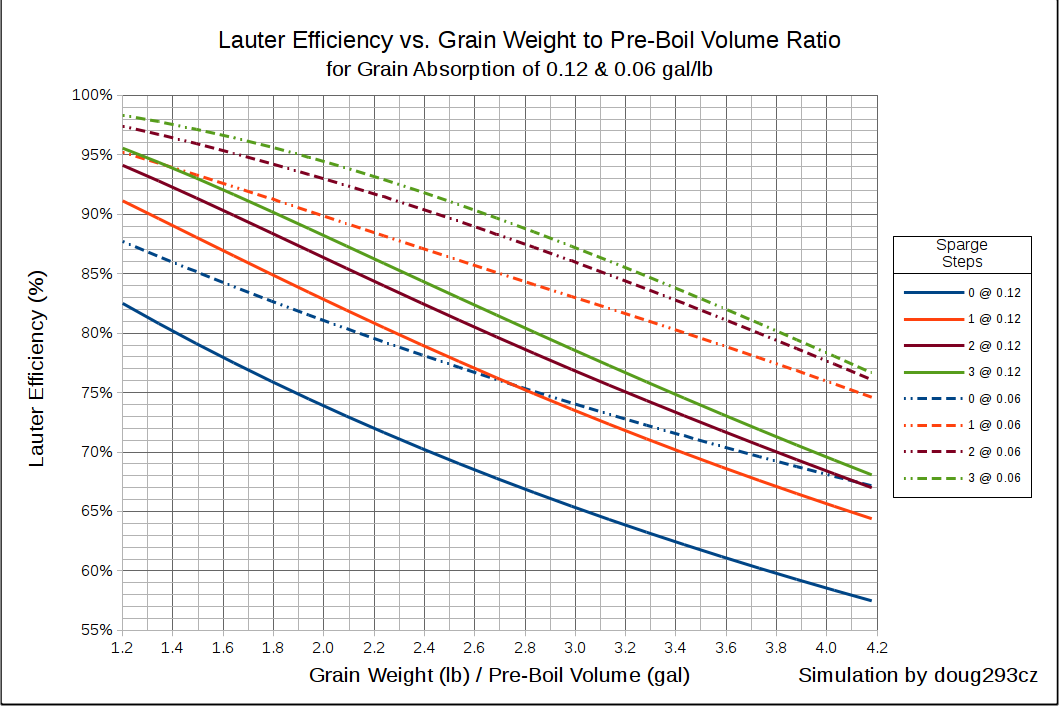creekcaster
Member
So I lurk a lot here and try to pick up on nuggets here and there. I've been home brewing regularly for about a year now... All grain BIAB.
I can't get decent efficiency, I always come up short on volume...am I boiling too long, is it my hydrometer, refractometer, do I just suck at conversion??!
Tonight I mashed 15lbs of grain, mashed in about 7.8 gal for about 1hr 20min. Boiled for about 1hr20min.
Pale malts with a pound of flaked rye... Getting an OG of 1.059... was looking for 1.068ish..... and I only get about 4.25 gal into the primary.
WTH am I doing wrong?!
I can't get decent efficiency, I always come up short on volume...am I boiling too long, is it my hydrometer, refractometer, do I just suck at conversion??!
Tonight I mashed 15lbs of grain, mashed in about 7.8 gal for about 1hr 20min. Boiled for about 1hr20min.
Pale malts with a pound of flaked rye... Getting an OG of 1.059... was looking for 1.068ish..... and I only get about 4.25 gal into the primary.
WTH am I doing wrong?!








![Craft A Brew - Safale BE-256 Yeast - Fermentis - Belgian Ale Dry Yeast - For Belgian & Strong Ales - Ingredients for Home Brewing - Beer Making Supplies - [3 Pack]](https://m.media-amazon.com/images/I/51bcKEwQmWL._SL500_.jpg)








































